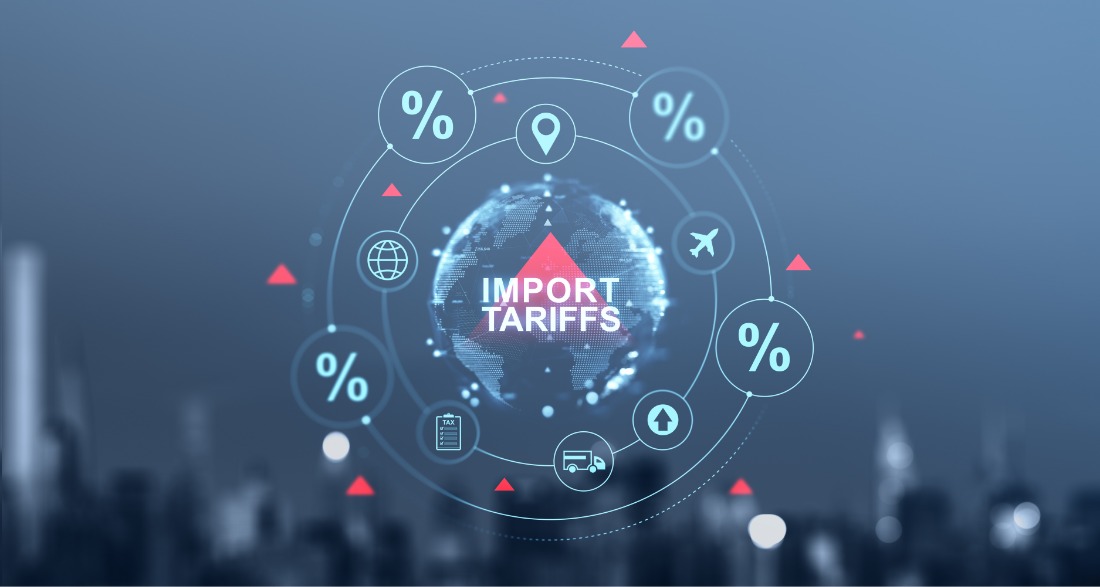
Imagine this: A manufacturer finalizes a deal to import essential raw materials from overseas. Suddenly, a new tariff regulation comes into play, increasing costs overnight. The entire pricing structure shifts, forcing the company to rethink its strategy. This is the reality of global trade—where tariffs can make or break supply chains.
What Are Tariffs?
Tariffs are taxes imposed by governments on imported goods. They serve various purposes, from protecting domestic industries to generating revenue. However, for businesses that rely on international trade, tariffs can significantly impact costs and supply chain efficiency. Understanding how these taxes influence global commerce is crucial for companies aiming to remain competitive in an evolving economic landscape.
How Tariffs Affect Supply Chains
Understanding how tariffs influence logistics and pricing is crucial for companies managing imports and exports. Some key impacts include:
- Increased Costs: When tariffs are imposed on imported goods, businesses face higher expenses that directly impact their bottom line. Companies must decide whether to absorb these additional costs, which can shrink profit margins, or pass them on to consumers through higher prices. In highly competitive markets, raising prices can result in reduced sales and lost market share, making cost management a critical challenge.
- Supply Chain Disruptions: Tariffs can force companies to reassess and adjust their sourcing strategies to mitigate financial strain. Some businesses may seek alternative suppliers in countries with lower tariff rates, but this transition often involves delays, additional transportation costs, and potential risks in quality or reliability. As a result, supply chains may experience temporary instability, affecting production schedules and customer satisfaction.
- Regulatory Complexity: Tariff policies are subject to frequent changes, creating a compliance challenge for businesses engaged in international trade. Staying up to date with shifting regulations is essential to avoid costly penalties or delays at customs. Companies must invest in legal expertise or trade compliance teams to navigate these complexities, ensuring they adhere to the latest tariff classifications, exemptions, and documentation requirements.
- Market Shifts: Tariffs have the power to alter trade dynamics by influencing which countries businesses engage with for imports and exports. If a major supplier becomes too expensive due to tariff increases, companies must pivot to new markets, forming new partnerships and renegotiating contracts. This shift can be beneficial in the long run, fostering diversification and resilience, but it requires time, effort, and strategic planning.
Strategies to Mitigate Tariff Risks
Businesses navigating tariff challenges can implement several strategies to maintain efficiency and competitiveness:
- Tariff Classification Optimization: Ensuring that products are accurately classified under the appropriate tariff codes can sometimes lead to lower duty rates. By carefully reviewing product descriptions and harmonized system (HS) codes, businesses may identify opportunities to legally minimize tariff expenses, reducing financial strain.
- Bonded Warehousing: Utilizing bonded warehouses allows businesses to store imported goods without immediately paying tariffs. This strategy provides financial flexibility by deferring duties until products are officially sold or distributed within the domestic market. It also offers an opportunity to re-export goods without incurring tariff costs, making it a valuable tool for companies engaged in international trade.
- Alternative Sourcing: Diversifying supplier networks across multiple countries can help businesses avoid over-reliance on a single region affected by tariffs. By proactively establishing relationships with suppliers in lower-tariff countries, companies can quickly shift procurement strategies when trade policies change, ensuring continuity in supply chains and minimizing disruptions.
- Negotiating Trade Agreements: Businesses can leverage free trade agreements, preferential trade programs, and duty drawback opportunities to offset the financial impact of tariffs. Engaging trade specialists or legal experts to identify and maximize these benefits can result in significant cost savings while maintaining compliance with international trade laws.
How Comet Delivery Helps Businesses Adapt
In an ever-changing regulatory landscape, working with a logistics partner that understands tariff implications is essential. At Comet Delivery, we help businesses streamline their supply chain, ensuring that shipments are routed efficiently to minimize costs and avoid delays. Our expertise in customs procedures, bonded cargo solutions, and regulatory compliance enables businesses to navigate tariff challenges with confidence. Whether you need assistance with optimizing shipment routes, reducing tariff exposure, or expediting customs clearance, our team is here to provide tailored logistics solutions that align with your business needs.
Final Thought: Staying Ahead of the Curve
Tariffs are an inevitable part of international trade, but they don’t have to derail your business. By staying informed and implementing proactive strategies, companies can mitigate risks and maintain operational resilience. At Comet Delivery, we’re here to help you adapt and thrive in an evolving global marketplace.
Need help managing your tariff-impacted shipments? Let’s discuss how we can optimize your logistics strategy all today at 1-888-266-3833!